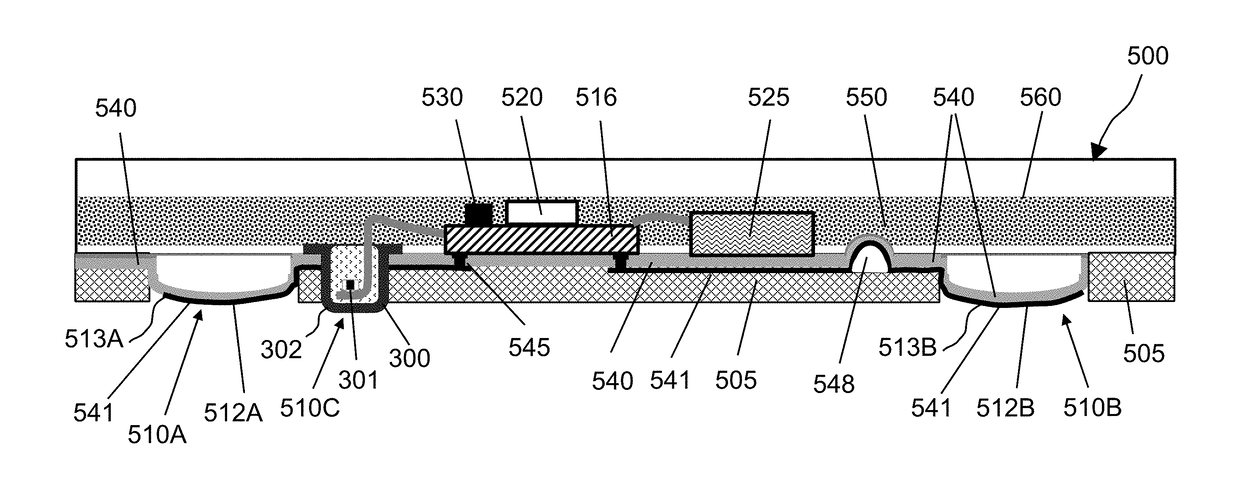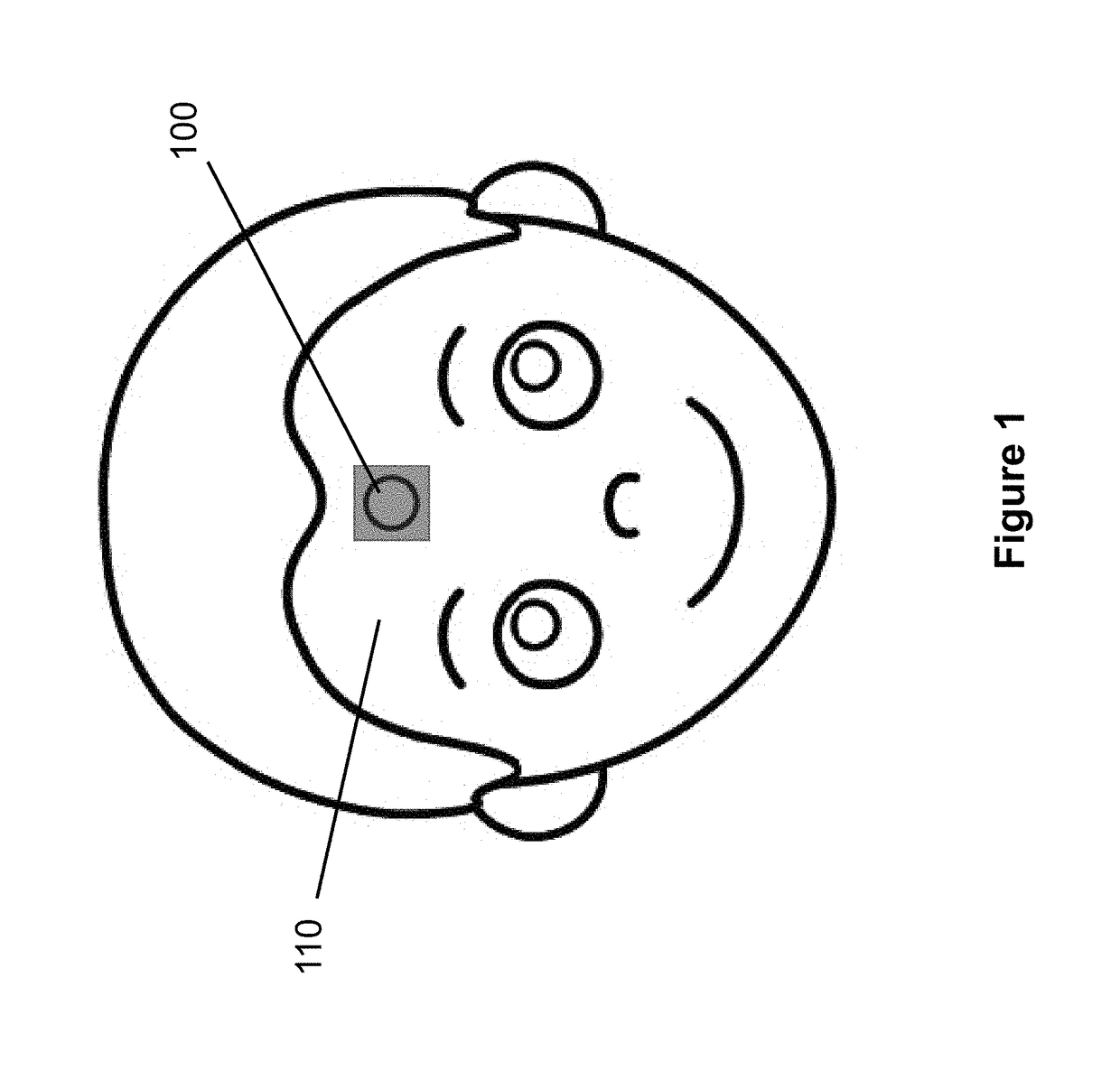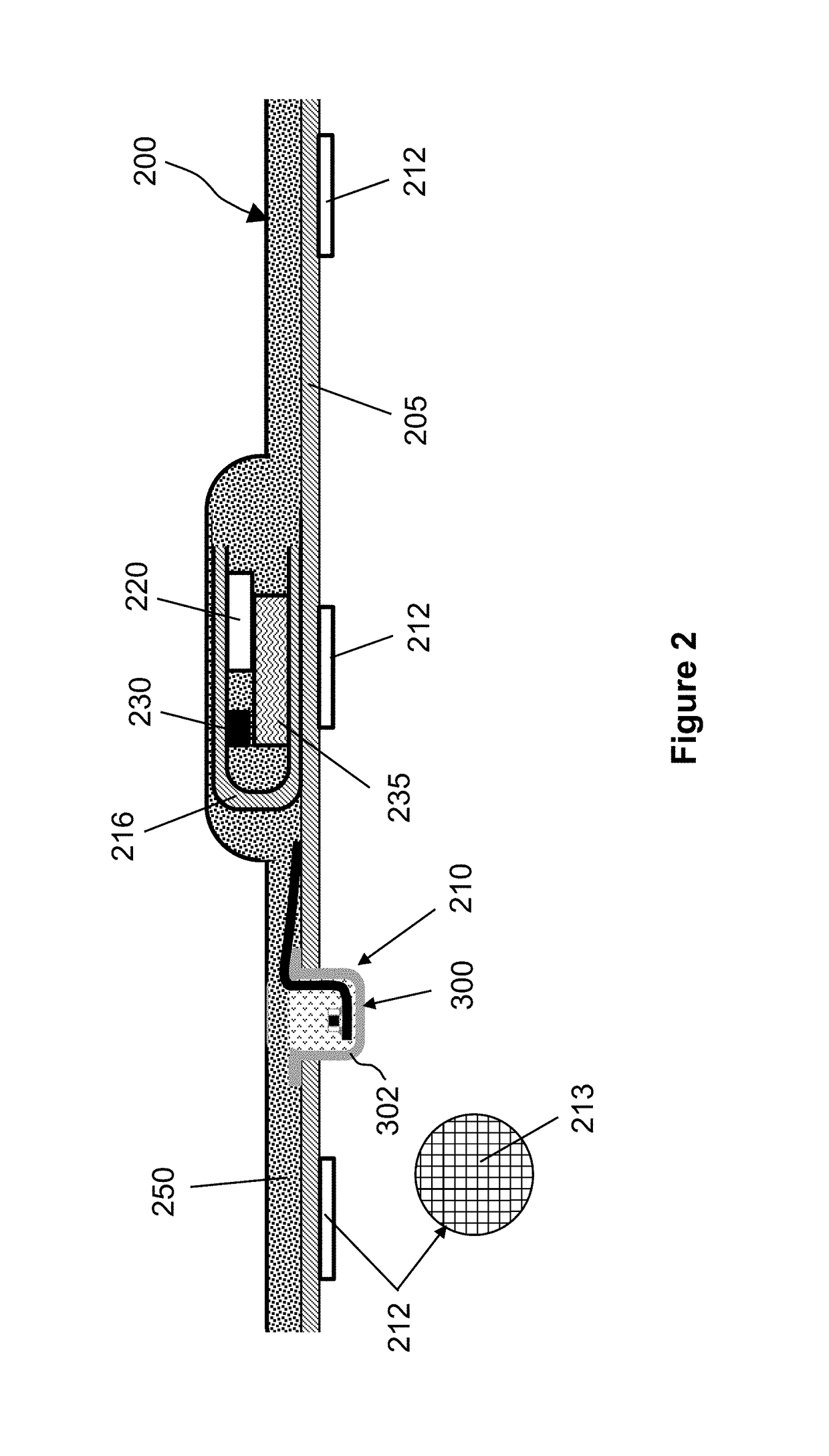Wearable patch for measuring temperature and electrical signals
- Summary
- Abstract
- Description
- Claims
- Application Information
AI Technical Summary
Benefits of technology
Problems solved by technology
Method used
Image
Examples
Embodiment Construction
[0021]Referring to FIG. 1, a wearable patch 100 is attached to a user's skin 110 for measuring body vital signs. The wearable patch 100 can be placed on forehead, hand, wrist, arm, shoulder, waist, leg, foot, armpit, or other parts of the body. In the present disclosure, the term “wearable patch” can also be referred to as “wearable sticker” or “wearable tag”.
[0022]As discussed above, wearable electronic patches face several challenges: the user's skin 110 may interfere with their proper operations. For example, the wearable patch 100 may include an antenna for wireless communications with other devices. The antenna's communication range can be significantly reduced when an antenna is placed in contact with the user's skin 110.
[0023]The presently disclosure aims to overcome the drawbacks in conventional wearable patches, and to provide highly stretchable, compliant, durable, breathable, and comfortable wearable electronic patches while performing more accurate and more responsive me...
PUM
 Login to View More
Login to View More Abstract
Description
Claims
Application Information
 Login to View More
Login to View More - R&D
- Intellectual Property
- Life Sciences
- Materials
- Tech Scout
- Unparalleled Data Quality
- Higher Quality Content
- 60% Fewer Hallucinations
Browse by: Latest US Patents, China's latest patents, Technical Efficacy Thesaurus, Application Domain, Technology Topic, Popular Technical Reports.
© 2025 PatSnap. All rights reserved.Legal|Privacy policy|Modern Slavery Act Transparency Statement|Sitemap|About US| Contact US: help@patsnap.com



